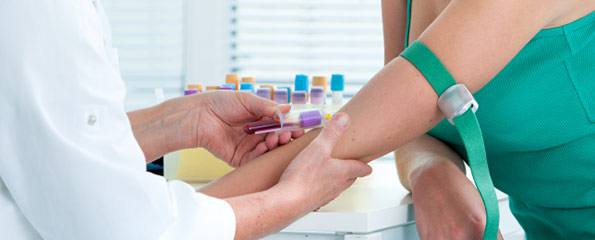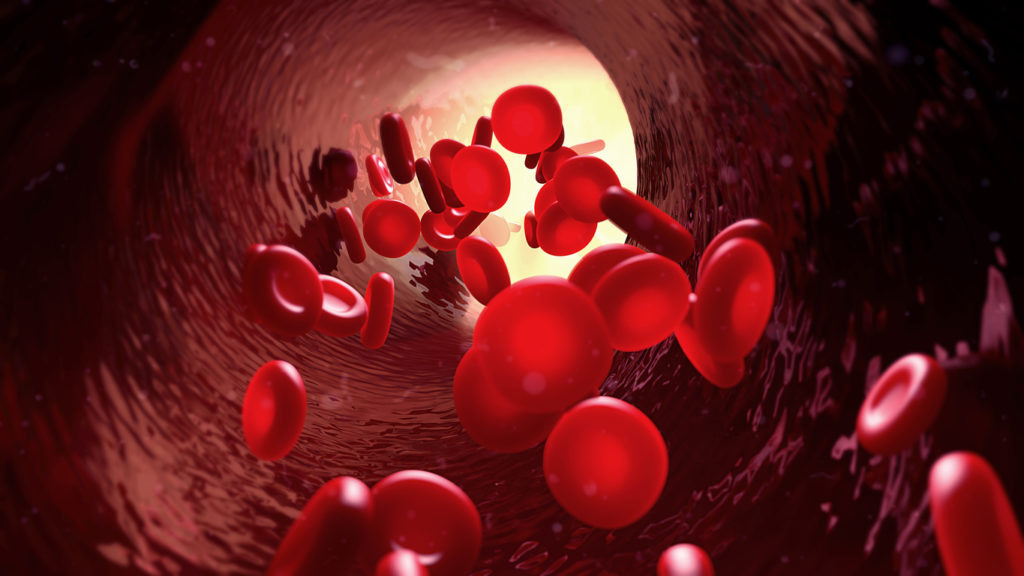The objective of the study is to evaluate the effect of Rimonabant 20mg in comparison to placebo, on HDL and VLDL lipoprotein kinetics, over a 12 months period.
Official Title
A Randomized, Double-Blind, Two Arm, Parallel, Placebo Controlled Study of Rimonabant 20 mg Effect on High Density Lipoprotein Kinetics in Patients With Abdominal Obesity and Additional Cardiometabolic Risk Factors
Conditions
Obesity
Study Type
Interventional
Study Design
Treatment, Randomized, Double-Blind, Placebo Control, Parallel Assignment, Safety/Efficacy Study
Further Details
Primary Outcome Measures:
- The fractional catabolic rate (FCR) of HDL ApoA-I after 12 months of treatment.
Secondary Outcome Measures:
- Production Rate (PR) of HDL ApoA-I and A-II, (FCR) of HDL ApoA-II
- PR and FCR of VLDL1 and VLDL2 Apo B, VLDL1 and VLDL2 TG, IDL Apo B and LDL Apo B
- Variation in ApoA-I, ApoA-II, Lp-AI, Lp-AII, pre-beta-HDL HDL2a, HDL2b, HDL3a, HDL3b, HDL3c, Apo B, Apo C III, TG, LDL-C, HDL-C levels
- Variation in Glucose, insulin, HbA1c, leptin, adiponectin
- Variation in hs-CRP, TNF-alpha, CETP, PLTP and LCAT activities, lipoprotein and hepatic lipase activities in post-heparin plasma
- Variation in whole body fat
- Variation in abdominal sub-cutaneous and visceral fat
- Variation in liver fat
- Variation in blood pressure
- Variation in body weight, waist circumference, waist/hip ratio
- CE/TG ratio in HDL
Study Start
October 2006
Eligibility & Criteria
- Ages Eligible for Study: 35 Years – 65 Years
- Genders Eligible for Study: Both Criteria
Inclusion Criteria:
- Abdominally obese patients with additional cardiometabolic risk factors
- Females must be post-menopausal
- BMI > 27 kg/m2 and < 40 kg/m2
- Men or women with abdominal obesity according to NCEP/ATPIII criteria: Waist Circumference > 88 cm in women; > 102 cm in men
- With at least one lipid abnormality defined as:
- Fasting Triglycerides level > 1.7 mmol/L (150 mg/dL) and < 4.5 mmol/L (400 mg/dL)
- HDL < 1.03 mmol/L (40 mg/dL) in men and < 1.29 mmol/L (50 mg/dL) in women
Exclusion Criteria:
- HDL <= 0.60 mmol/L (23 mg/dl)
- Plasma LDL-Cholesterol > 155 mg/dl (4.00 mmol/L) or total cholesterol 250 mg/dl (> 6.5mmol/L) or genetic hyperlipidaemia
- Fasting triglycerides > 400 mg/dL (4.5 mmol/L)
- Known heterozygous or homozygous familial hypercholesterolaemia or know type III hyperlipoproteinaemia (familial dysbetalipoproteinaemia)
- ApoE2/E2 homozygosity, Apo E4/E4 homozygosity
- Type 2 diabetes treated with oral agents and/or insulin
- Diet treated type 2 diabetic patients with HbA1c >= 7%
- History of cardio vascular disease
- Systolic blood pressure >= 160 mmHg or diastolic blood pressure >= 95 mmHg.
- Very low-calorie diet (1200 calories a day or less) or history of surgical procedures for weight loss (e.g., stomach stapling, bypass)
- Body weight fluctuation > 5 kg during the previous 3 months
- History of bulimia or anorexia nervosa by DSM-IV criteria
- Presence of any clinically significant endocrine disease according to the investigator, Cushing syndrome, obesity secondary to hypothalamic/pituitary disorder.
- Abnormal TSH and free T4 at baseline (Patients treated with thyroid replacement therapy must be on fixed and stable dose for at least 3 months prior to screening and must be in euthyroïd status.)
- Severe hepatic impairment known by the investigator or AST or ALT > 3 times the ULN at screening.
- Known severe renal dysfunction (creatinine clearance < 30 ml/min) or urine analysis (performed at screening by dipstick) showing 2+ or more protein
- Presence of any condition (medical, including clinically significant abnormal laboratory test, psychological, social or geographical) actual or anticipated that the investigator feels would compromise the patient safety or limit his/her successful participation to the study
- Patient treated for epilepsy
- Ongoing major depressive illness
- Uncontrolled psychiatric illness
- History of alcohol and/or drug abuse
- Smoker or smoking cessation within the past 3 months
- Marijuana or hashish users
- Previous participation in a Rimonabant study or to any other clinical trial within 4 weeks to study start
- Hypersensitivity/intolerance to the active substance or to any of the excipients such as lactose
- Blood donation within the past 3 months prior to the study or planned during the study or within the 3 months from the study completing
- Recent history of active peptic ulcer
- Willebrand disease or other hemorrhagic diatheses
- Administration of any of the following within 3 months prior to screening visit and susceptible to be prescribed during the study treatment period:
- Lipid-lowering drugs intake
- Anti obesity drugs
- Other drugs for weight reduction (phentermine, amphetamines)
- Herbal preparations for weight reduction
- Other drugs known to affect lipid metabolism: retinoids, antiretroviral, estrogens and hormone replacement therapy, cyclosporine, glitazones, benfluorex, fish oils, plant sterols.
- Thiazids (including fixed combination) at daily dose higher than 12.5 mg
- Unselective beta-blockers
- Prolonged use (more than one week) of systemic corticosteroids, neuroleptics
- Anticoagulants
- Ongoing antidepressive treatment
Total Enrolment
80
Contact Details
Australian Locations:
- North Ryde, Australia; Recruiting
For more information, email: publicregistryGMA@sanofi-aventis.com (Please refer to this study by ClinicalTrials.gov identifier NCT00408148 )
All content and media on the HealthEngine Blog is created and published online for informational purposes only. It is not intended to be a substitute for professional medical advice and should not be relied on as health or personal advice. Always seek the guidance of your doctor or other qualified health professional with any questions you may have regarding your health or a medical condition. Never disregard the advice of a medical professional, or delay in seeking it because of something you have read on this Website. If you think you may have a medical emergency, call your doctor, go to the nearest hospital emergency department, or call the emergency services immediately.







